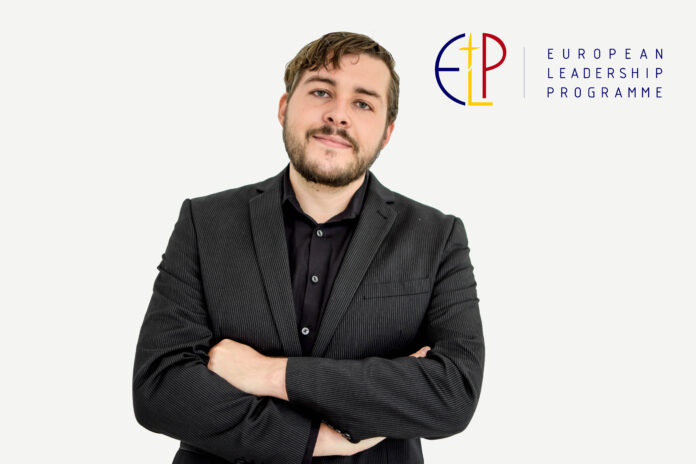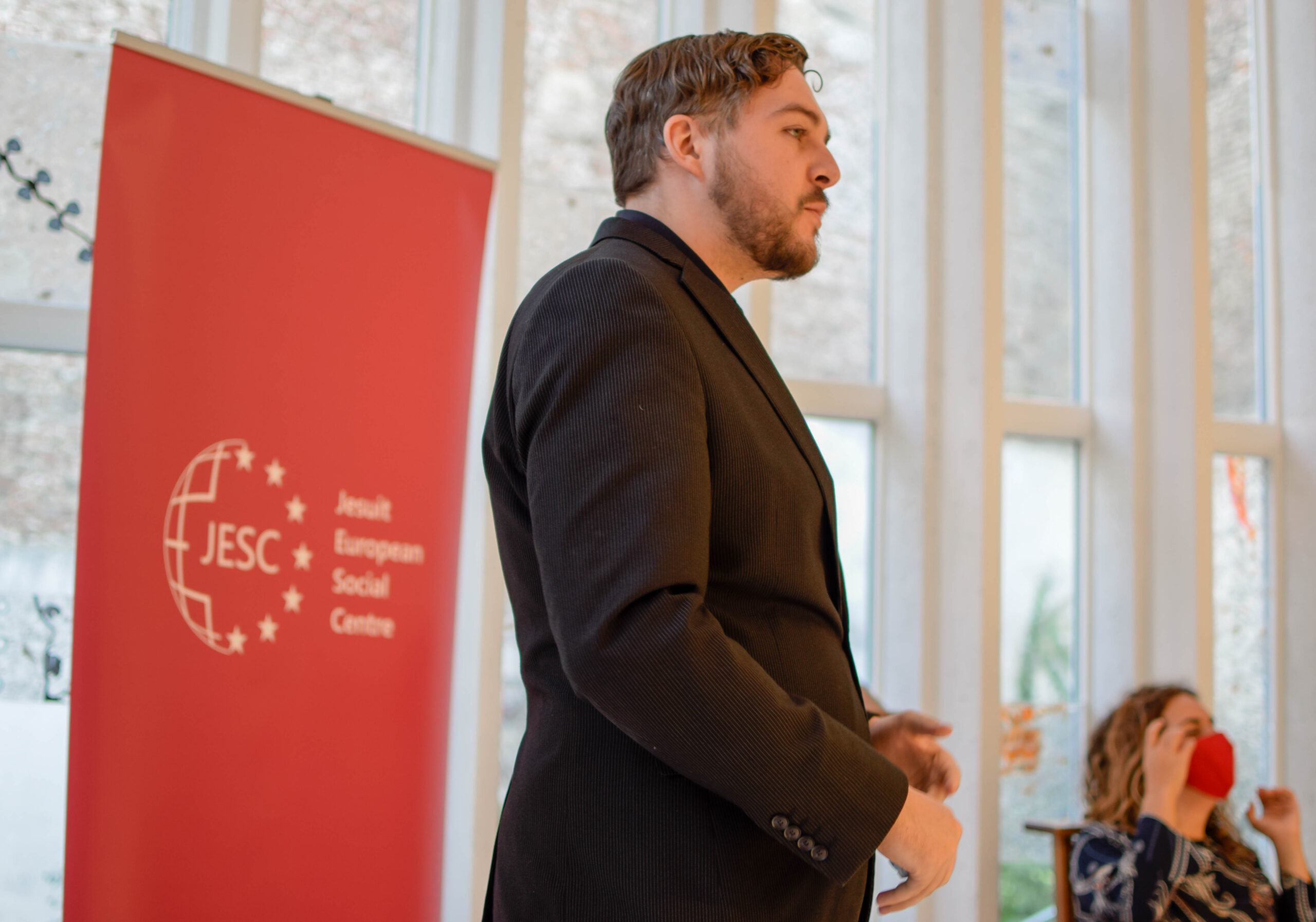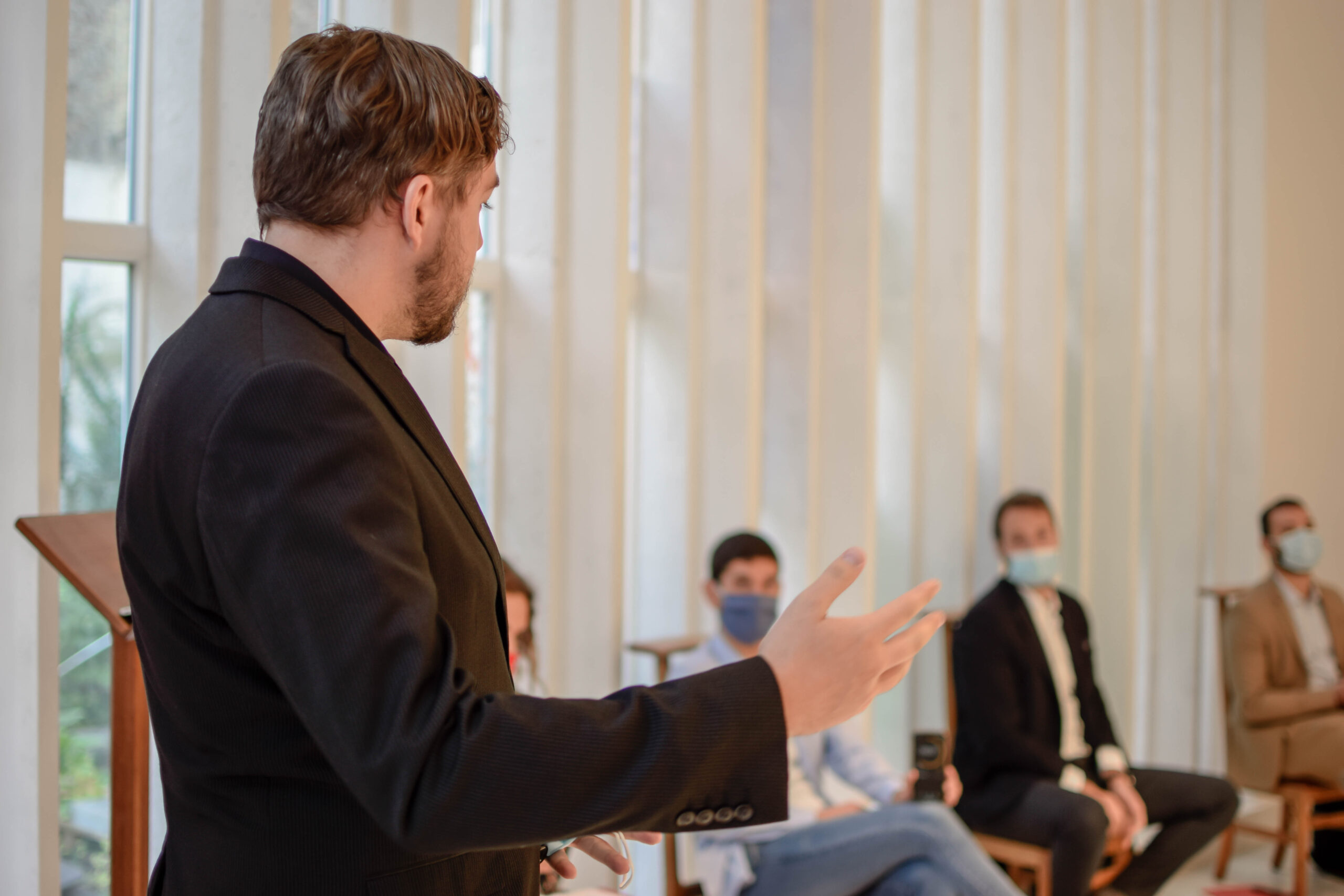The European Leadership Programme is about personal and professional growth. It opens a career pathway for those who want to become European leaders. It also gives them the possibility to decide how to manage their life in Brussels and define their learning process. The ELP involves commitment, effort, interest, curiosity, meeting deadlines, participation in sessions and discussions and community life. With the purpose of inaugurating its 4th edition, The European Leadership Programme (ELP) will interview the Fellows to share their impressions, expectations, ambitions and general thoughts linked to the Programme and their new life in Brussels, the EU Capital.
Name: Nikolas Schulze-Makuch
Country: Germany/USA
Traineeship placement: The European Committee of the Regions, ECR Political Group
Who are you? We want to get to know you.
Q: Tell us a bit about yourself.
I’m a German American of Polish ancestry who at age 19 decided to move to Europe to pursue my education and career in the direction of politics. I recently graduated with a Master’s and I have been working at the European Committee of the Regions, in the ECR political Group since February of 2020.
Q: Describe yourself in three words.
Sociable, Outgoing, Kinda funny
Q: What are your interests or hobbies outside of work?
I’m an outdoor cat, I really enjoy socializing in large groups with people, being in the outdoors as well. I really enjoy hiking with friends in the woods. That’s one thing I must say I miss about the United States, is the wide-open spaces and forests.
Q: Do you have any inspirational person or quote?
I’ve recently been inspired by the leadership of French President, Emmanuel Macron, as a Conservative I disagree with him vehemently on fundamental issues of European Integration. However, I must express admiration on how he has navigated his country through crisis after crisis, even through criticism and dire circumstances he has shown fortitude and strength.
Q: What motivates you in life/ What are you passionate about?
My lifelong passion has been in history, its my favourite subject and in my free time I read a lot of historical fiction, The Russian author Leo Tolstoy is my favourite. I believe history does not repeat itself, but it does rhyme. Humanity is not that unique. Often our problems (whether personal or societal) have a solution in our shared past.
Career Goals
Q: How would you describe your ideal job and how ELP can help you achieve that?
I would say, I’m interested in a junior level position dealing with the news and contemporary policies. I’d like a job that is social and works in the direction of either transatlantic relations or EU politics moreover.
Q: What are your short and long-term career plans?
Well, I’d like to graduate from the ELP and land a junior level position in a firm. I’d like to then resume my studies of the Russian language and continue to build my credentials and skills in the direction of contemporary politics. I’m open to opportunities that may come my way.
ELP Programme (aspirations and expectations)
Q: What was your motivation to apply to the ELP?
Pope St. Pius X said, “the primary duty of charity, is not in the indulgence of falsehood.” I feel that many leaders today rule by emotion and popular consensus as opposed to facts or truths even if these truths are unpopular. I think the ELP is a great opportunity to not only discover more truth, but to learn more about responsible, quality leadership.
Q: Did your experience so far meet your general expectations of the Programme?
Absolutely, obviously I’m disappointed that we can’t meet in person, and that most of our events are online. Nevertheless, I really feel I’ve learned a lot and broadened my horizons by engaging with people and ideas from all aspects of European life.
Q: What is the biggest challenge that you face so far (overall)?
For a traineeship I have a lot of responsibility and it is at times demanding. Balancing my schedule with my job, the ELP and my personal social life and was a bit of a challenge at times.
Q: What do you expect to achieve with this Programme?
Ideally, I hope to network and be able to springboard into a new job. Beyond that I hope to challenge myself more mentally and intellectually, and ultimately emerge as a more rounded person.

Traineeships in times of COVID-19
Q: How has Covid-19 affected your life and professional experience in Brussels?
Its forced me to adapt. I can’t network at the PLUX or meet people one on one. But Charles Darwin knew that the species which survives, is the one which is most flexible to change. While I don’t like the situation, it is a “sink or swim” scenario and I like to think I’ve been able to adapt to the COVID-19 life successfully.
Q: How did COVID-19 affect your traineeship?
Its required me to work from home, which as a very social person I wasn’t a fan of. In the end, we’ve been dealing with COVID since March, so life before seems more and more like a memory, and COVID just seems like a normal reality I have to contend with.
Lifestyle in Brussels
Q: Tell us a bit about the experience of sharing a house in Brussels.
Its been good. I like my housemates, the neighbours are nice, I can’t complain.
Q: Can you describe what a typical day in your life in Brussels looks like?
A typical day involves me teleworking for the ECR Group. I’m usually working on something communications or policy oriented. When that’s done I often have an ELP event, I then have a call with some old friends, eat dinner and drink a beer with my flatmates, who are also ELP fellows.
Q: How are you adapting to Brussels and to this new experience outside your country?
I enjoy it. I didn’t have French in school which has been a challenge, but in the end the locals are nice and the city has a lot to offer.
Leadership
Q: How do you think ELP will help you in the path of becoming a better leader?
I believe the teachings of the Catholic Church has fundamentally good and produce moral people and leaders. Having said that, mastering these teachings is impossible and even saints had their flaws. So I think the ELP helps by making these teachings easier to grasp, especially in the context of the political sphere.
Q: What leadership skills did you learn so far/or except to learn?
I hope to be more well-rounded on EU policies and the decision-making process. I feel I have charisma but I find myself lacking some of the “know-how” as it relates to certain policy domains or procedures in hierarchical decision making.
Q: ELP encourages Fellows to engage in community service through volunteering. What do you think about Volunteering and what are your plans to volunteer?
I volunteer at the Red Cross Food Distribution; I think its important to see life outside of the privileged and highly educated bubble we live in. Europe is more than over-paid, pompous bureaucrats, there are real issues and there is real suffering, that’s why acts of charity are even more important.
Q: What part of the Programme you are looking forward to the most; meeting any speaker, a specific lecture or activity?
I’d say I’m looking forward the paper defence at the end. It’d be really interesting to see what the other fellows wrote, they all have a very interesting background and are clearly very intelligent so I’m sure I’ll be introduced to a topic I know nothing about.




